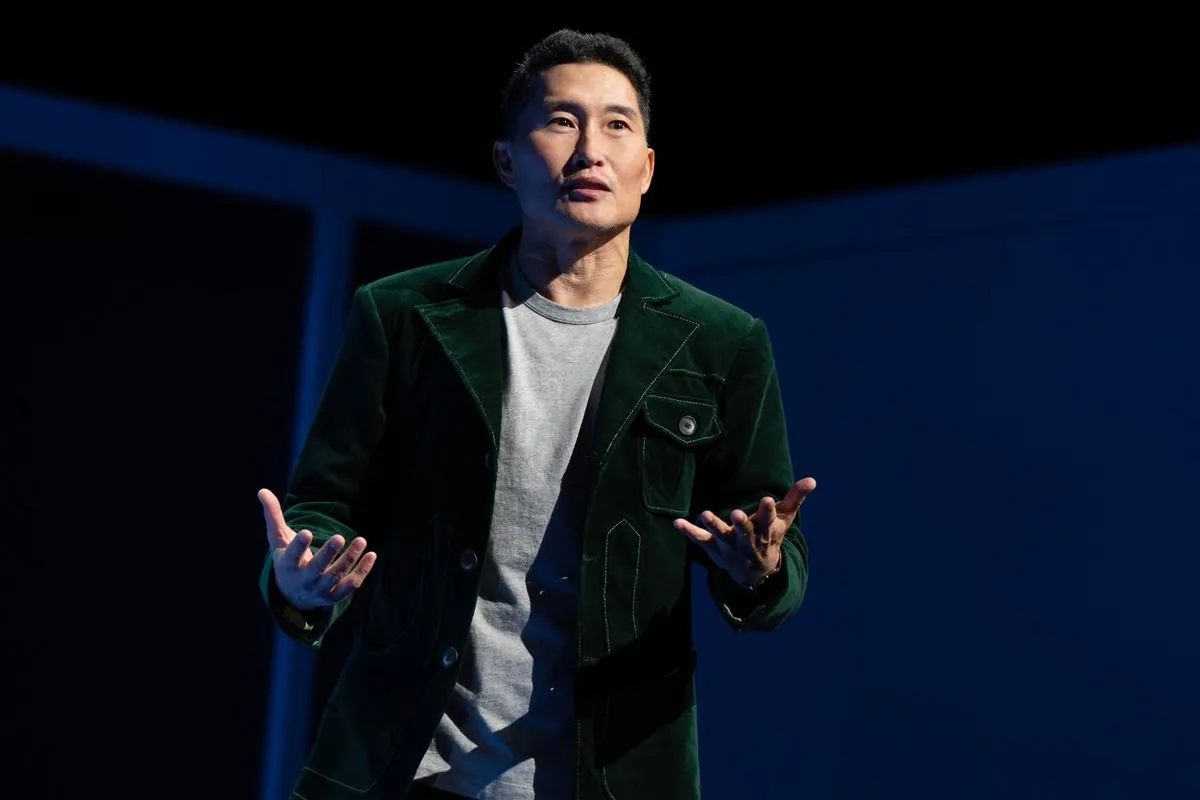Broadway's "Yellow Face" Tackles Racial Identity in Theater
David Henry Hwang's "Yellow Face" premieres on Broadway, starring Daniel Dae Kim. The play explores representation and identity in theater, reflecting on ongoing issues of racial stereotyping and authenticity.

David Henry Hwang's groundbreaking play "Yellow Face" has made its Broadway debut, starring Daniel Dae Kim as the playwright's alter ego. This production, directed by Leigh Silverman, brings to the forefront issues of racial representation and identity in theater that remain relevant today.
Hwang, a pioneering figure in Asian American theater, has long been at the center of discussions about diversity and authenticity on stage. His career, spanning over four decades, has been marked by numerous accolades and controversies. In 1988, Hwang became the first Asian American to win a Tony Award for Best Play with "M. Butterfly," a work inspired by the true story of a French diplomat's relationship with a Chinese opera singer who was actually a male spy.
The playwright's involvement in the 1990 "Miss Saigon" casting controversy, where he protested the casting of a White actor in an Asian role, forms a significant part of "Yellow Face." This incident sparked widespread discussions about racial representation in theater, a debate that continues to this day.

"Yellow Face" blends fact and fiction, imagining a scenario where Hwang mistakenly casts a White actor to play an Asian role in his own play. This creative twist allows the playwright to explore the complexities of racial identity and the sometimes arbitrary nature of categorization.
"If there's one thing you care about, it's what others think of you."
Kim's portrayal of Hwang's alter ego, DHH, is described as "exceptionally good," capturing the frustration and hypocrisy inherent in navigating these complex issues. The actor, known for his roles in "Lost" and "Hawaii Five-O," brings a nuanced performance to the stage, reflecting the internal conflicts of his character.
The play touches on various themes, including self-determination, privacy, and the consequences of stereotyping. It raises questions about who has the right to play certain roles and the implications of "wearing difference as a costume." These issues remain pertinent in today's entertainment landscape, where discussions about representation and authenticity continue to evolve.
"Yellow Face" also delves into the personal impact of racial stereotyping, particularly through the character of Hwang's father. This subplot, based on real events, highlights the damaging effects of perceiving Asian Americans as perpetually foreign.
As a professor at Columbia University and a board member of the Lark Play Development Center, Hwang continues to influence and shape American theater. His work, including "Yellow Face," has been recognized with numerous awards and has been produced in over a dozen countries.
The Broadway premiere of "Yellow Face" serves as a testament to Hwang's enduring impact on American theater and his ongoing commitment to addressing issues of representation and identity. As racial tensions and stereotypes persist, this production offers a timely and thought-provoking exploration of these complex themes.


































